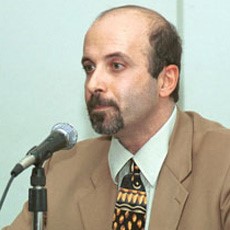As a writer, intellectual, cultural attaché to the Delegation of Lebanon at UNESCO, Knight of the Order of Arts and Letters, specialist in cultural diversity issues, Bahjat Rizk is on all fronts. He will be taking part on Monday, Oct. 28, in a round table discussion at the Cultural Center of the College Notre Dame de Jamhour, in the work of RP Selim Daccache, rector of Saint Joseph University, entitled’’Pluralisme, vivre ensemble et citoyenneté au Liban. Le salut vient-il de l’école ?’’ (Pluralism, living together and Citizenship in Lebanon. Will salvation come from school education?)
Interview with Bahjat:
Your book ‘The parameters of Herodotus, published by Orient-Le Jour, offers a revolutionary thesis on how to consider identity. Can you explain how these structural parameters of identity, as defined by Herodotus in the fifth century BC, that still exist today, can represent a new way of life for the Lebanese people?
In our globalized world today, cultural diversity affects all societies. The revolution in communication technologies has led to an interpenetration of cultural spaces that can result in either an increase or a candied openness to other cultures. I set myself to research the Lebanese example, a lively experience that has not yet been conceptualized. I wanted to create a reference frame back to Herodotus, the father of history which witnessed the first clash between the Greeks and Persians, and by referring to the Unesco Charter which uses the same parameters in a diametrically opposed fashion.
In short, I wanted to approach cultural diversity from the political anthropology perspective. The question of identity is a matter of social sciences and humanities, and thus dialectical by nature.
You are at the heart of the Lebanese cultural life in Paris as a cultural attaché to the Delegation of Lebanon to UNESCO and as a writer, lecturer and intellectual. Could you tell us more about this constant bubbling of our compatriots in the City of Light and your role among them?
The Lebanese community is very active in the cultural life of Paris and in the many activities at UNESCO. It is a Lebanese feature to link culture with social life. The Lebanese people like to meet. These characteristics of being cultural and commercial mediators can be traced down to the Phoenicians. They transpose this feature wherever they go, especially in Paris, where there is an abundance of opportunities and symbolic meeting places.
I greatly enjoy creating this link and managing these multiple events because I think it fits in my function as a cultural attaché and it also fits in my approach to serve Lebanese culture and pluralism in all its forms for over twenty years now.
What role does culture play today, specifically in a pluralistic country like Lebanon?
There is an undeniable relationship between culture and politics. The specific Lebanese example of pluralism makes Lebanon culturally rich but also politically fragile. Lebanese political leaders should raise the level of politics to the level of culture, by internalizing the Lebanese cultural wealth as an added value, rather than exploiting culture for political means which serves to maintain an archaic and discriminatory system. Cultural pluralism belongs to all Lebanese beyond denominational divisions. It is their common heritage that can only survive if they work on preserving it together.
Interview by Zeina Kayali, Paris




